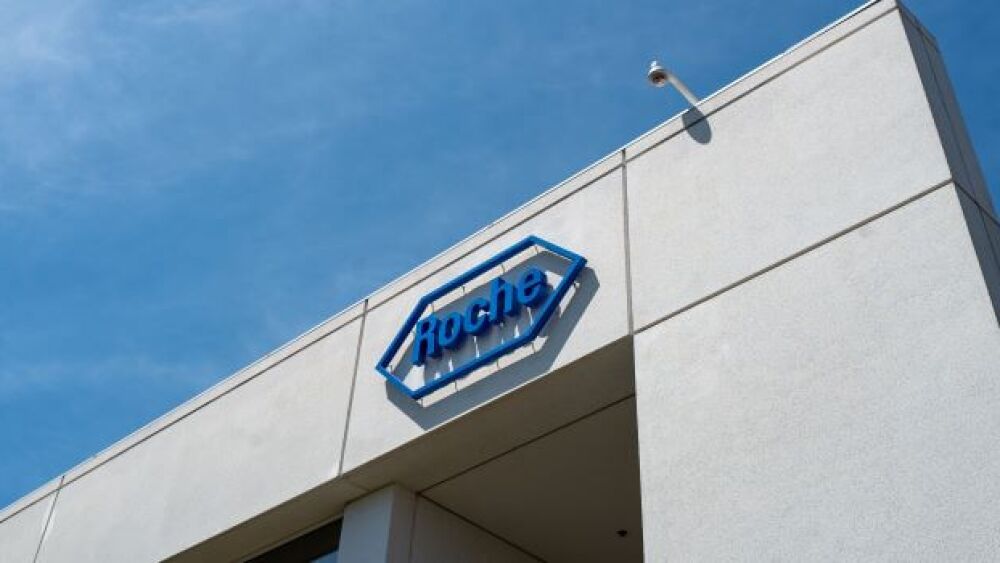Roche and Austria-based Hookipa Pharma tied up a licensing and research and development collaboration valued at more than $950 million focused on KRAS-mutated cancers.
Roche and Austria-based Hookipa Pharma tied up a licensing and research and development collaboration valued at more than $950 million focused on KRAS-mutated cancers.
The deal, announced Thursday, focuses on Hookipa’s HB-700 program, an investigational arenaviral immunotherapy for the treatment of KRAS-mutated cancers.
Roche also has the option to license a second undisclosed novel arenaviral immunotherapy.
For Hookipa, the collaboration with the Swiss pharma giant is its first oncology licensing deal and investors appear to favor the move; the company stock is up 40% Thursday.
HB-700 is designed to treat KRAS-mutated tumors including cancers of the lungs, pancreas and colorectal malignancies. HB-700 is a replicating 2-vector therapy that targets the most common KRAS mutations; G12D, G12V, G12R, G12C and G13D.
KRAS (Kirsten rat sarcoma 2 viral oncogene homolog) is a gene responsible for controlling cell growth and maintaining regular signaling and proliferation. Mutations of KRAS leads to uncontrolled cell division and are responsible for multiple solid tumors.
Inhibition of KRAS mutations has become a popular target for oncology companies like Roche.
There are several drugs that target KRAS mutations.
- Amgen won accelerated FDA approval for Lumakras (sotorasib), a treatment for patients with KRAS G12C-mutated locally advanced or metastatic non-small cell lung cancer.
- Mirati Therapeutics is seeking approval for its KRAS G12C-focused adagrasib. A PDUFA date has been set for Dec. 14.
- Other companies focused on KRAS mutations include Merck, Eli Lilly, Moderna and Boehringer Ingelheim.
Seven years ago, Roche won approval for a KRAS diagnostics test. The cobas KRAS Mutation test is designed to identify KRAS mutations in tumor samples from metastatic colorectal cancer patients.
In 2020, Roche subsidiary Genentech licensed RG6433, an SHP2 inhibitor from Relay Therapeutics and has since advanced it into the clinic. The SHP2 enzyme is believed to play a role in regulating KRAS between its “on” and “off” states.
Hookipa and Roche see HB-700 as an opportunity to simultaneously target a broader range of KRAS mutations and widen the appeal of the drug, should it achieve regulatory approval.
Hookipa’s arenaviral technology has shown promise in preclinical development and in an earlier Phase I study in patients with advanced Human Papillomavirus 16-positive head and neck cancers.
Arenaviral technology has clinically demonstrated the ability to induce potent antigen-specific CD8+ T cell responses, said James Sabry, global head of pharma partnering at Roche, in a statement.
Hookipa will be responsible for conducting research and early clinical development through Phase Ib.
Once those challenges have been overcome, Roche has the right to assume responsibility for further development and potential commercialization for multiple indications.
“Roche is an ideal partner, both in terms of development and reaching patients with novel cancer therapeutics,” said Joern Aldag, CEO of Hookipa said in a statement.
Aldag told BioSpace that discussions with Roche began at the American Society of Clinical Oncology meeting last year. Roche saw the preclinical data generated by the company and became interested in partnering with Hookipa, he said.
“We have proven in animals and now humans an antigen-specific T cell response of a magnitude you have a tough time finding anywhere else…That led to a deal with people who know oncology,” Aldag continued.
Although he was unable to provide a specific timeline, Aldag said Hookipa is between 12 and 18 months from filing an Investigational New Drug application and beginning clinical trials with HB-700.
Under terms of the deal, Hookipa will receive $25 million in an upfront cash payment. If Roche opts in on the second candidate, Hookipa will receive an additional $15 million. In all, the company will be eligible for future developmental milestones valued at up to $930 million for both programs. Hookipa will also be eligible for tiered royalties if the assets are commercialized.





